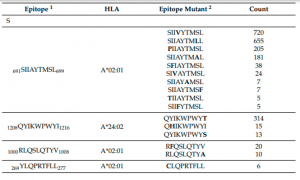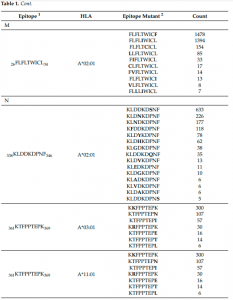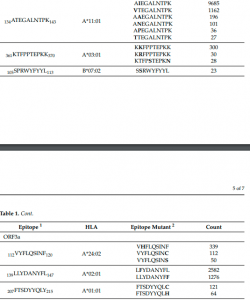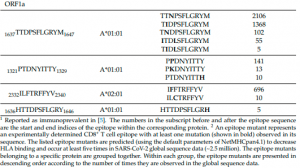Infection and immunisation against SARS-CoV-2 is capable of generating specific neutralising antibodies and T-cells. However, this immunity may begin to fade due to evolutionary mutations of the virus (Read more here).
Recent studies have reported that the specific T-cell response to SARS-CoV-2 is robust and are relatively unaffected by the mutations seen in the variants of concern (VOCs). It must be said that a loss of CD8+ T-cell responses has been observed in a small group of individuals who have either recovered from infection or who are vaccinated against the SARS-CoV-2 Omicron variant.
The evolution of CD8+ T-cell epitopes has left a weaker T-cell response in some individuals, therefore compromising the protection established through vaccinations and/or infection.
A recent paper by Ahmed, et al., aimed to identify and screen the mutations of SARS-CoV-2 involved in CD8+ T-cell escape. The researchers looked at 753 distinct HLA-specific CD8+ T-cell epitopes and SARS-CoV-2 genetic sequence data.
In this present study they found 83 SARS-CoV-2 mutations of CD8+ T-cell epitopes which may result in an escape of the T-cell response (Table 1). In future, these mutations may become of concern as they may affect the ability of SARS-CoV-2 to evade the immune response in previously-infected and vaccinated individuals.
Table 1: List of SARS-CoV-2 immunoprevalent HLA-specific CD8+ T cell epitope mutants recommended for experimental investigation (Ahmed, et al., 2022).
Journal article: Ahmed, S. F., et al., 2022. Identification of Potential SARS-CoV-2 CD8+ T Cell Escape Mutants. Vaccines.
Summary by Stefan Botha














